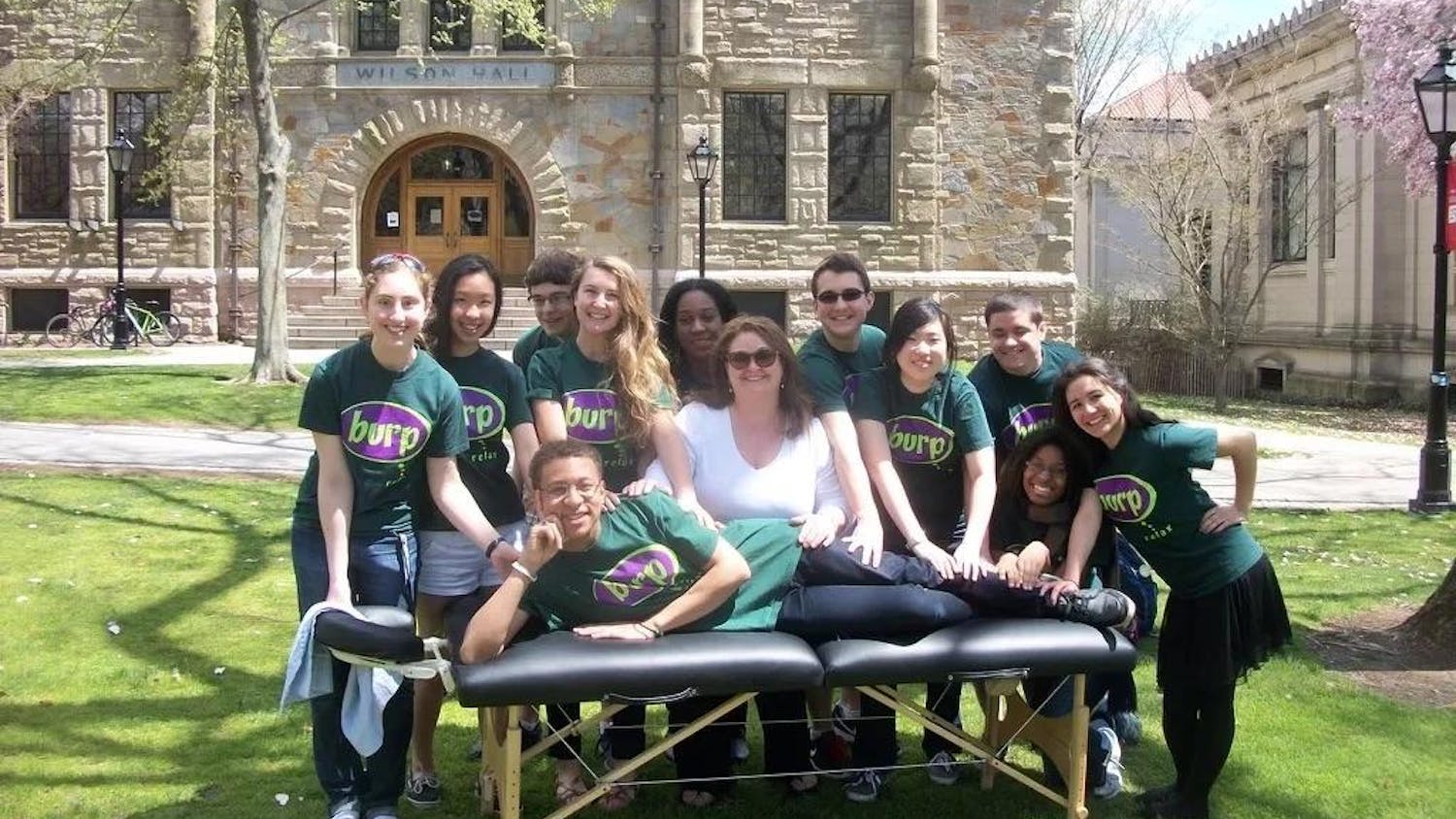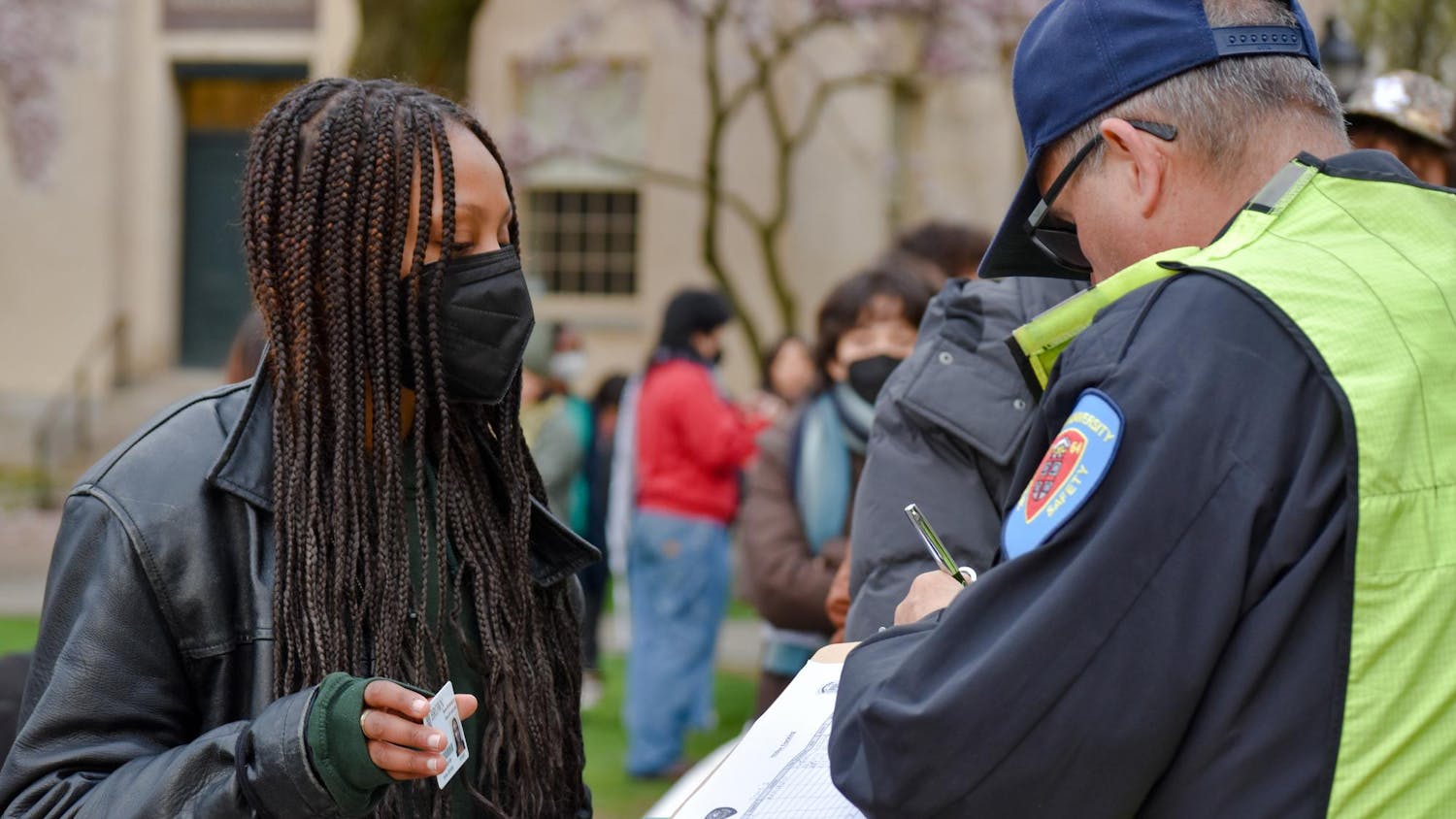The University spent nearly $160,000 on various lobbying activities, including direct contact with government officials to influence national, state and local legislation, in the 12 months ending in June 2008, according to its most recent publicly available tax filings.
The total includes $65,755 spent on total compensation for Brown officials who work to influence efforts at the federal and state levels and nearly $93,698 to organizations that specialize in lobbying the federal government on behalf of research universities.
The tax filings for 2008 show a large jump in spending on lobbying. In the previous fiscal year, spanning parts of 2006 and 2007, the University coughed up only $52,329 for lobbying activities. But the University may be cutting back on the fees doled out to lobbyists and related organizations, said Marisa Quinn, vice president for public affairs and University relations.
"Every year, we review the value for the University of belonging to these organizations," Quinn said, adding that since 2008 the University has reduced some of its contributions to lobbying organizations and is planning to reduce more.
For example, Quinn said, the University does not intend to pay $26,600 in membership dues this year to the National Association of College and University Business Officers, an advocacy organization.
The lobbying cutbacks have come amid a larger effort to reduce budget shortfalls — the University is seeking to trim more than $30 million this fall from next year's budget.
On the University's most recent Form 990, a publicly available tax document that the Internal Revenue Service requires nonprofit organizations to submit, officials reported that Brown "engages consultants to promote its mission by working with state and federal government entities to advocate for legislation and policy initiatives that support higher education and the University's research agenda."
The form also specifies that "certain members of the University's staff or management devoted a small portion of their time on similar activities," explaining why the University reports a portion of these officials' salaries as lobbying expenditures.
Tim Leshan, the University's director of government relations and community affairs, said "almost all research universities hire someone to do government relations and to lobby on their behalf."
"I'm hard-pressed to name a research university that doesn't hire a lobbyist," he said.
In addition to individuals on Brown's payroll, the University also paid a general counsel $6,700 in consulting fees in 2008 as part of its lobbying effort, Quinn said.
The University allocates a significant portion of these lobbying fees to various organizations that do lobbying work at the federal level who attempt to affect policies and legislation relevant to higher education, according to Leshan. For fiscal year 2008, these included national organizations such as NACUBO, the Association of American Universities, the National Association of Independent Colleges and Universities and The Science Coalition, he said, adding that much of the recorded expenditures went towards membership dues to these organizations.
Leshan said the University belongs to these organizations because the organizations themselves employ lobbyists who can serve the interests of universities more efficiently than individuals working on Capitol Hill.
"They worked across the whole Congress," he said of lobbyists' efforts paid for in 2008. "They're in the halls of Congress every day."
Some of these organizations — including the AAU — played a significant role in lobbying for stimulus funding, ensuring there would be provisions that would support university-based science research, Leshan said.
Other organizations were involved with tax policy, research funding and financial aid issues, he said, including the reauthorization of the Higher Education Act, which President George W. Bush signed into law in August 2008. That legislation is responsible for authorizing the primary federal student aid programs to provide assistance to many college students.
Leshan said he is personally involved in direct lobbying at the federal level as the University's primary government liaison, adding that a portion of the reported fees include funds allocated to his personal salary and benefits.
In addition to the payments the University reported for fiscal year 2008, the University recently hired a Washington-based political consulting firm, Lewis-Burke Associates, to inform the University of available research opportunities.
"Lewis-Burke was hired primarily when stimulus funding became available because we wanted to have a better connection with agencies that provided funding," Leshan said. "They are not really lobbying as much as facilitating our relationship with the funding agencies."
But he said it was important to understand that the University was not hiring its own individual lobbyists to promote Brown's agenda. The organizations that Brown pays to represent it in government, he said, should be considered a necessary and valuable asset.
"They are lobbying on our behalf," he said. "That is the primary reason for their existence."




